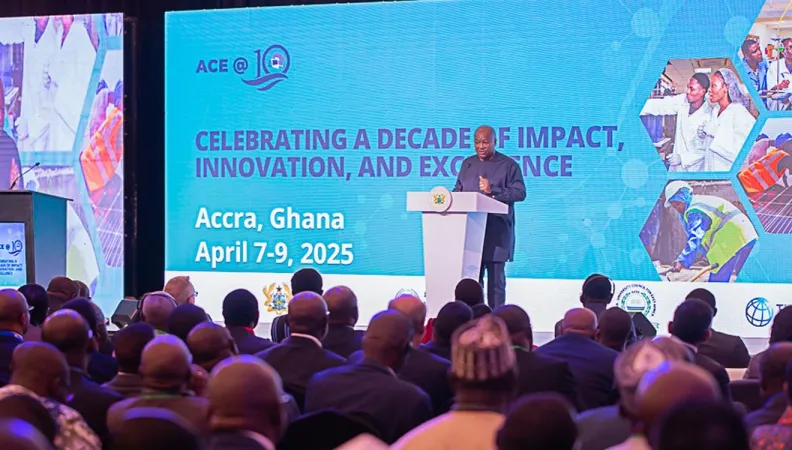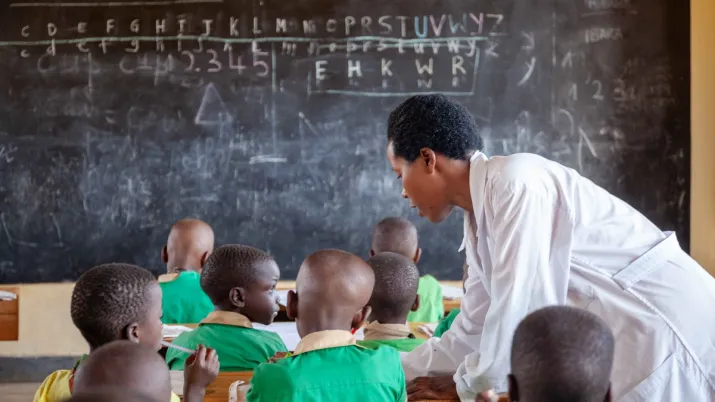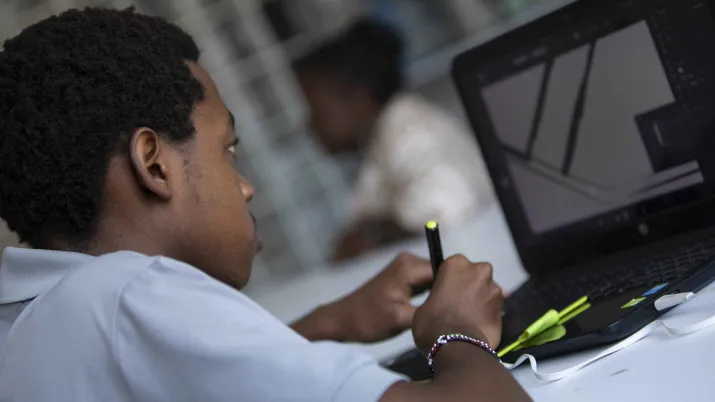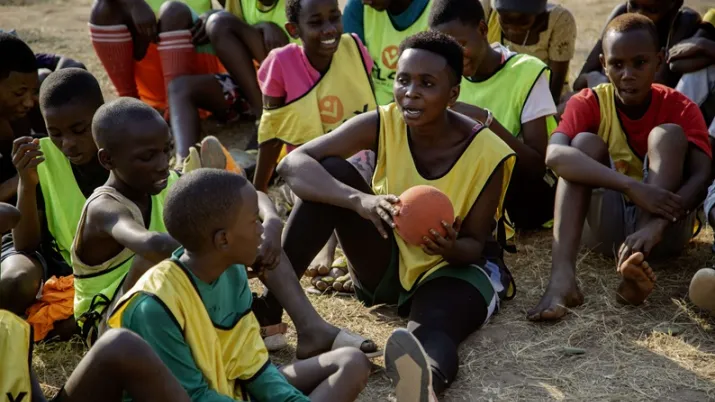Share the page
Ten years on, the higher education and research program making a lasting impact in Africa
Published on

Launched in 2015, the African higher education Centres of Excellence program is celebrating ten years of transforming higher education across the continent. Led by the Association of African Universities (AAU), with financing from the World Bank Group and Agence Française de Développement (AFD), this ambitious project has established a network of universities, driving innovation, research and economic development in Africa. A decade on, we take a look back at this collective program’s achievements and consider its prospects for the future.
In April 2025, representatives from several African governments, the World Bank Group, AFD and the AAU met in Accra to mark a major milestone: the tenth anniversary of the African higher education Centres of Excellence program (ACE). The initiative was launched in 2014 with the aim of addressing a major challenge across Africa: the local upskilling of high-level talent capable of leading innovation, research and economic development. While the World Bank Group is the main funder and AFD a key partner through co-financing, the AAU is responsible for the program’s operational coordination, playing a central role in its practical implementation.
AFD came on board as a key partner when the program was gaining momentum in 2018, co-financing the ACE IMPACT phase, which provided targeted support for centers of excellence in Côte d’Ivoire, Nigeria and Benin. The aim of this phase was to bolster the local economic impact of these centers, by improving the quality of training, developing international accreditation and establishing close ties with business professionals. At the same time, AFD also supported the ACE Partner project via a grant to IRD (the French National Research Institute for Sustainable Development), leading to the creation of four thematic networks and linking 23 centers of excellence in eight countries to promote regional cooperation and the sharing of best practices.
See also: MadAtlas: a mutually enriching Madagascar-France double degree
Over 90,000 students trained
Ten years on, the results speak for themselves. More than 90,000 students have received training, nearly one-third of whom are women, with over 8,000 PhDs awarded, 87 patents filed, 76 brands created and 82 startups launched. The centers have also raised close to $184 million in external financing, demonstrating their capacity to become recognized drivers of innovation on the continent.
According to Professor G.A. Aderounmu, Director of the OAU ICT-Driven Knowledge Park Center of Excellence based in Nigeria, “at Obafemi Awolowo University, the ACE program has mainly focused on empowerment, collaboration and impact. By encouraging students to take charge of their projects and develop practical solutions, we're preparing a new generation of leaders to meet the complex challenges of the 21st century.”
By developing projects within the centers, students gain valuable skills that go beyond traditional academic training. As Professor Aderounmu says, “by leading projects at the center, our students acquire essential skills in critical thinking, leadership and entrepreneurship, which puts them ahead of the curve in their career development and prepares them to become important agents of innovation.”
See also: Africa-France academic partnerships focus on gender equality and employability
Promoting sustainable development in Africa
The program not only supports individual success; its impact is also assessed against the centers’ capacity to promote sustainable development in African societies. “Supporting student-driven innovation is about more than just academic achievement; we are actively promoting the sustainable development of our communities, by transforming ideas into real-life solutions for Africa,” adds Professor Aderounmu.
The World Bank Group, AFD and AAU confirmed their plans to extend this partnership during the celebration held in Accra in early April. A new phase is currently being developed, which will target strategic sectors such as health, agriculture and digital innovation, with artificial intelligence a key focus. AFD will join following project identification in 2026.
Through its engagement in the ACE program, AFD reaffirms its belief that investing in higher education and scientific research is a long-term investment in Africa’s future. According to Gabrielle Leroux, AFD’s Higher Education Lead, “The ACE program has clearly shown that investing in higher education and research – closely linked to economic actors – leads to the emergence of innovative local solutions, whether technological, social, or environmental, to address sustainable development challenges.” Furthermore, AFD currently supports over 110 higher education institutions across Africa, in addition to the African Centers of Excellence.



